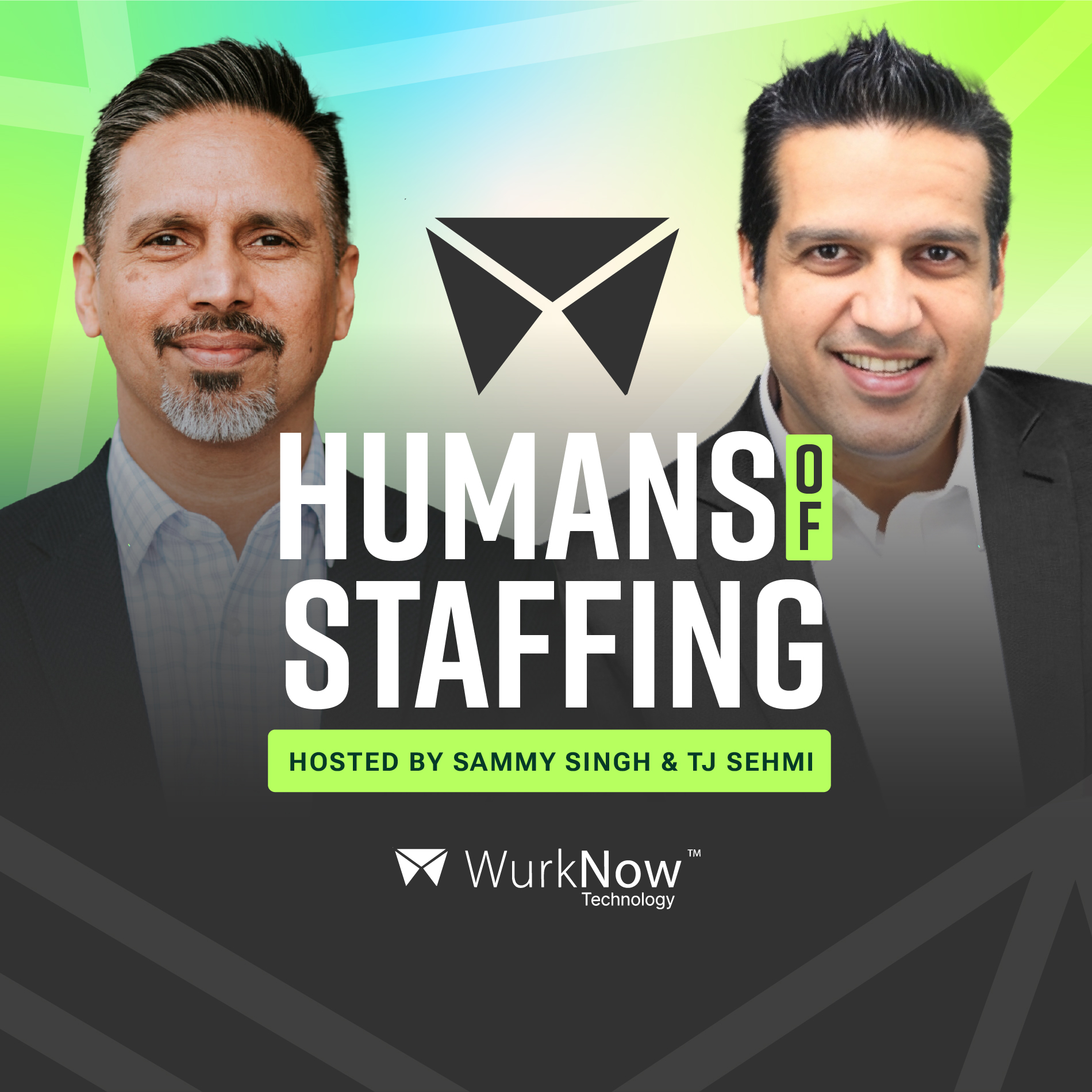Humans of Staffing
Podcast Description
Welcome to Humans of Staffing, where we explore the untold stories of the staffing industry’s most interesting leaders and innovators. Join hosts Sammy Singh and TJ Sehmi as they unpack real experiences from agency owners, operators, and the talent that powers the industry. From celebrating customer success stories to diving deep into technology trends like AI adoption, each episode brings authentic conversations about what’s really happening in staffing. Whether you’re running an agency or looking to modernize your operations, you’ll discover valuable insights from those building the future of staffing.
Podcast Insights
Content Themes
This podcast focuses on the staffing industry's evolution, exploring topics such as technology integration, candidate verification methods, and compliance challenges. Episodes feature case studies like Dynasty Employment Solutions' success with client portal analytics and discussions on AI's role in recruitment, highlighting strategies for modernizing staffing operations.

Welcome to Humans of Staffing, where we explore the untold stories of the staffing industry’s most interesting leaders and innovators. Join hosts Sammy Singh and TJ Sehmi as they unpack real experiences from agency owners, operators, and the talent that powers the industry. From celebrating customer success stories to diving deep into technology trends like AI adoption, each episode brings authentic conversations about what’s really happening in staffing. Whether you’re running an agency or looking to modernize your operations, you’ll discover valuable insights from those building the future of staffing.
What does it take to place temporary workers on billion-dollar naval vessels where internet connectivity doesn’t exist, credentials expire weekly, and a falling piece of metal from 80 feet can be fatal? Jay Prock runs Tidewater Staffing, a family operation that deliberately fights growth for growth’s sake to maintain the quality and safety standards that keep 3,000-4,000 people working annually in Virginia’s ship repair and shipbuilding industry.
After buying the company from his father in 2018, Jay discovered that the real competitive advantage wasn’t technology or scale. It was overstaffing with onsite coordinators who physically walk temps from pier to vessel, hand them safety glasses when they forget them at 5:36 AM, and maintain relationships that keep workers from letting down someone they know personally. This approach, combined with mandatory six-point suspension hard hats with chin straps after a near-fatal incident, has created 82% participation in healthcare benefits where industry standard is closer to 5%.
Jay’s contrarian philosophy, inspired by Bo Burlingham’s “Small Giants,” rejects geographic expansion and vertical diversification in favor of becoming the best operation in a single port. The result is $17,000 spent on hoodies for temps, training facilities with mock shipboard environments, and success stories like a laborer starting at $7.35/hour who exited a $22 million private equity sale as part owner.
Topics discussed:
- Overstaffing onsite coordinator roles to provide manual touchpoints where Wi-Fi and internet connectivity don’t exist on naval vessels
- Managing two-week credentialing processes requiring DVIDS access, MARMAC ship lists, and maritime OSHA 10-hour certifications for entry-level positions
- Implementing upgraded six-point suspension hard hats with chin straps after incident where falling metal knocked off traditional four-point hard hat
- Running proprietary training programs modeled on AMP (Association for Materials Performance and Preservation) to upskill fire preventers into coatings roles
- Achieving 300-350 weekly healthcare benefit participants (out of 600 field workers) using pre-tax dollar algorithm that only enrolls if marginal pay increases
- Rejecting growth opportunities outside ship repair, shipbuilding, logistics, and manufacturing in Southeast Virginia to maintain service quality
- Serving on Virginia Ship Repair Foundation Board to create endowment fund and scholarships for industry workforce development
- Dividing family business responsibilities with sister (13 months younger) handling HR and workers comp while managing finances and customer relationships

Disclaimer
This podcast’s information is provided for general reference and was obtained from publicly accessible sources. The Podcast Collaborative neither produces nor verifies the content, accuracy, or suitability of this podcast. Views and opinions belong solely to the podcast creators and guests.
For a complete disclaimer, please see our Full Disclaimer on the archive page. The Podcast Collaborative bears no responsibility for the podcast’s themes, language, or overall content. Listener discretion is advised. Read our Terms of Use and Privacy Policy for more details.